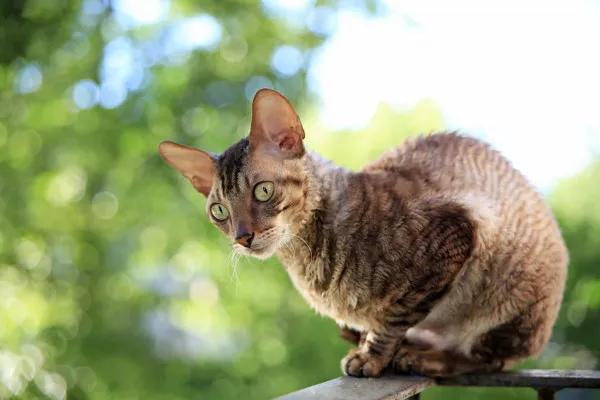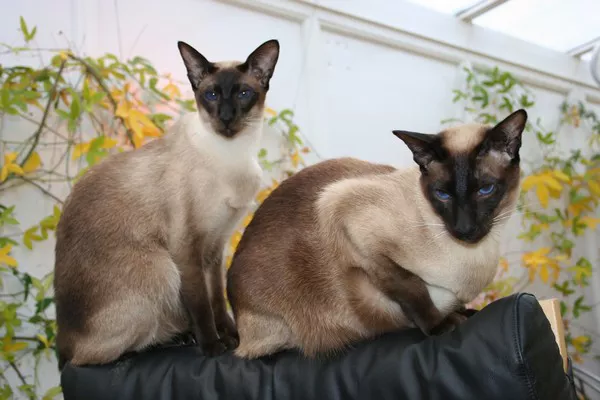Cornish Rex cats are a unique breed with a distinctive curly coat and an active, playful personality. Originating in England in the 1950s, these cats have since become popular pets around the world. While they may look different from other cats, their dietary needs are similar to those of other felines. In this article, we will explore what Cornish Rex cats eat in the wild and how their diet can be replicated in a domestic setting.
Introduction: Understanding the Cornish Rex
Cornish Rex cats are known for their wavy or curly fur, which is caused by a genetic mutation that affects the structure of their hair follicles. They are also highly energetic and intelligent, often described as “mischievous” or “playful.” Despite their unusual appearance and lively nature, Cornish Rex cats are still obligate carnivores, meaning that they require a diet high in meat-based proteins to thrive.
What do Cornish Rex cats eat in the wild?
Like all cats, Cornish Rex cats are hunters by nature. In the wild, they would consume small prey such as birds, rodents, and insects. These animals provide a rich source of protein, fat, and other essential nutrients that cats need to maintain good health.
In addition to whole prey, wild Cornish Rex cats might also consume some plant matter as part of their natural diet. For example, they might nibble on grasses or herbs to help aid digestion or provide additional vitamins and minerals.
Replicating a Wild Diet for Domesticated Cornish Rex Cats
While it’s not practical or ethical to feed your Cornish Rex cat a diet consisting solely of live prey, there are ways to mimic the nutritional content of a wild diet in a domestic setting. Here are some key factors to consider when feeding your Cornish Rex cat:
Protein: As obligate carnivores, cats require a diet high in animal-based proteins to meet their nutritional needs. Look for cat food that lists meat or fish as the first ingredient, and avoid foods with fillers or artificial ingredients.
Fat: Fat is an essential nutrient for cats, providing energy and aiding in the absorption of certain vitamins. However, it’s important to keep fat intake moderate to prevent obesity and related health problems. Look for cat food with a moderate fat content, around 20-25% on a dry matter basis.
Moisture: Cats have a low thirst drive and are prone to dehydration, so it’s important to provide them with plenty of moisture in their diet. Wet or canned food is an excellent source of hydration, while dry kibble typically contains less moisture.
Fiber: While cats don’t require fiber in large quantities, it can help regulate digestion and prevent hairballs. Look for cat food that includes small amounts of fiber from sources such as beet pulp or vegetable fibers.
Vitamins and Minerals: A well-balanced diet should include all of the essential vitamins and minerals that cats need to maintain good health. If you’re unsure whether your cat’s diet is providing adequate nutrition, talk to your veterinarian about supplementing with a high-quality cat multivitamin.
What food should I buy for a Cornish Rex?
1. High-quality cat food: Look for cat foods that have plenty of protein from animal sources like chicken, turkey, fish, or beef. Avoid fillers like grains, corn, and wheat, as well as artificial preservatives and flavors.
2. Wet food: The Cornish Rex is prone to urinary tract issues, so incorporating wet food into their diet can help prevent these problems. Wet foods also provide additional hydration, which can be beneficial for cats that don’t drink enough water.
3. Raw food: Some owners prefer to feed their Cornish Rex a raw food diet, which consists of uncooked meat, organs, and bones. This type of diet can help maintain the cat’s natural carnivorous diet, but consult with a veterinarian before making the switch.
4. Supplements: Consider adding supplements to your cat’s diet to ensure they are getting all the necessary nutrients. Omega-3 fatty acids can help support heart and joint health, while probiotics can promote healthy digestion.
Conclusion
Cornish Rex cats are unique, energetic, and playful felines with specific dietary needs. By understanding what Cornish Rex cats eat in the wild and how to replicate that diet in a domestic setting, owners can ensure that their pets receive the nutrients they need to thrive. Whether feeding wet or dry cat food, it’s important to choose high-quality products that meet the nutritional requirements of these obligate carnivores. With proper care and attention to diet, Cornish Rex cats can live long, healthy, and happy lives.











![Do Birman Cats Like to Cuddle? [Revealed!]](https://www.catsmeowweb.com/wp-content/uploads/2023/06/burmese-cat-22.webp)
![Do Birman Cats Like to Cuddle? [Revealed!]](https://www.catsmeowweb.com/wp-content/uploads/2023/06/burmese-cat-23.webp)
![Do Birman Cats Like to Cuddle? [Revealed!]](https://www.catsmeowweb.com/wp-content/uploads/2023/06/burmese-cat-24.webp)













